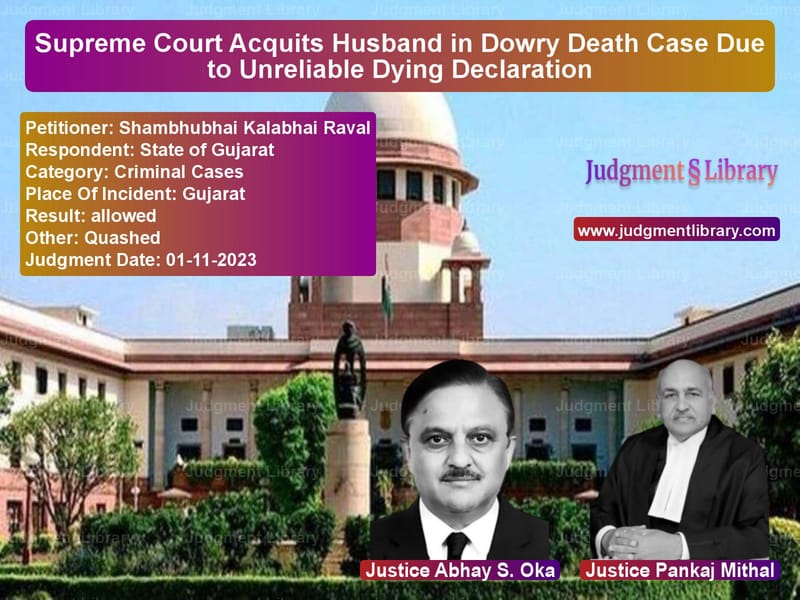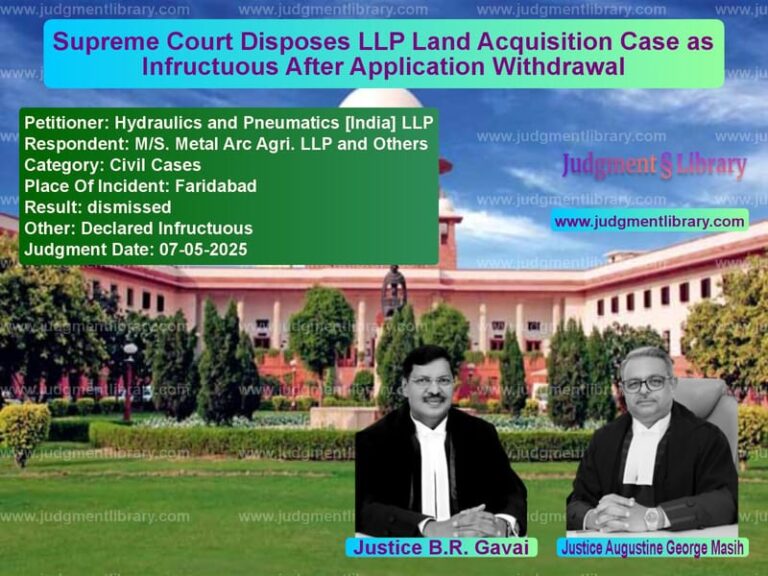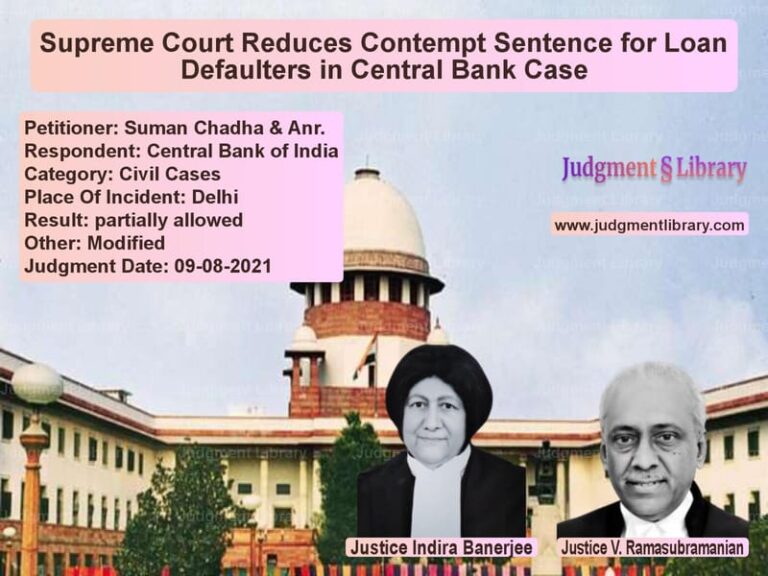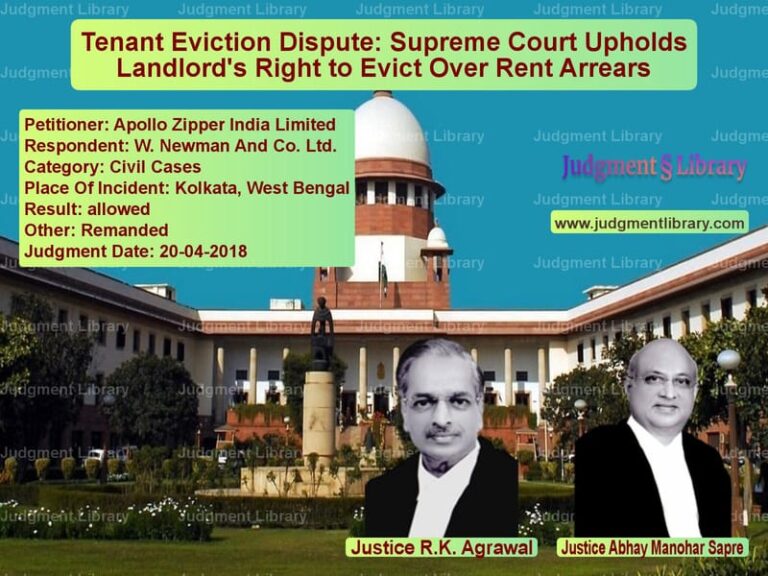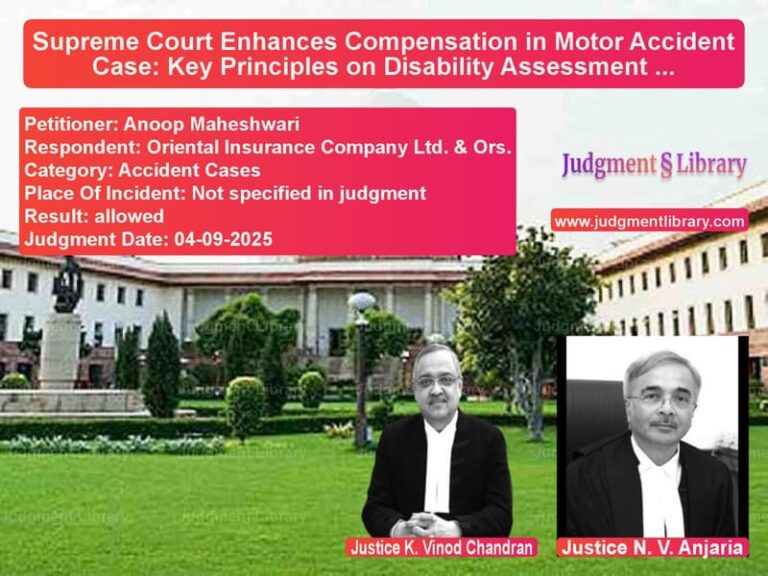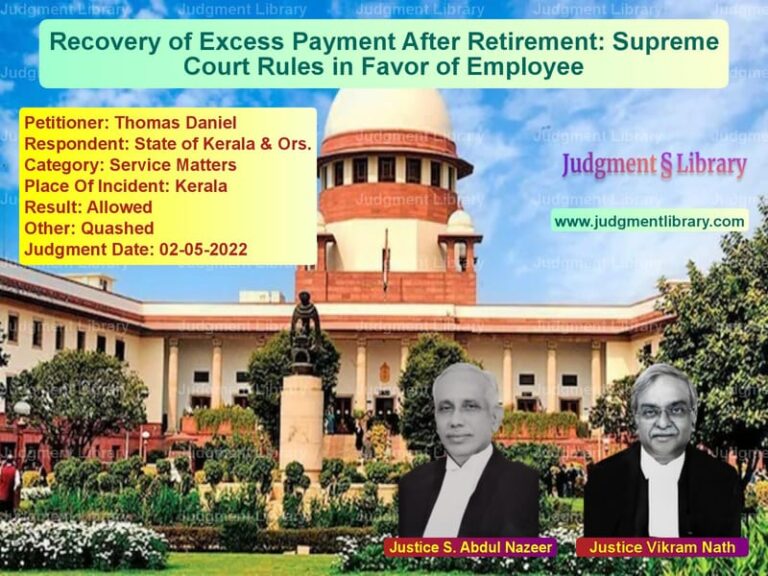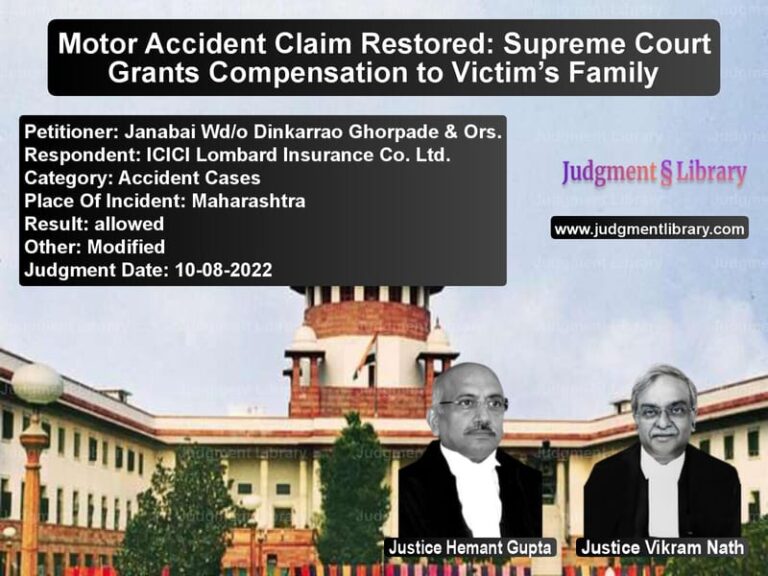Supreme Court Acquits Husband in Dowry Death Case Due to Unreliable Dying Declaration
The Supreme Court of India recently ruled in Shambhubhai Kalabhai Raval v. State of Gujarat, acquitting the appellant, who was convicted under Sections 306 and 498A of the Indian Penal Code (IPC) for abetment of suicide and cruelty towards his wife. The judgment is a significant precedent on the reliability of dying declarations and the necessity of corroborative evidence in criminal cases.
Background of the Case
The case pertained to the death of the appellant’s wife in 1994. According to the prosecution, the deceased, unable to bear the alleged harassment from her husband and mother-in-law, set herself on fire after pouring kerosene on her body on July 31, 1994. She succumbed to her injuries on August 4, 1994. The trial court convicted the appellant based on her dying declaration, which implicated her husband and mother-in-law. The Gujarat High Court upheld the conviction, leading to this appeal before the Supreme Court.
Prosecution’s Allegations
The prosecution relied on:
- The dying declaration recorded by PW3-Kachrabhai, an Executive Magistrate.
- The testimony of PW1-Dolabhai (father of the deceased) and PW4-Pravin Kumar (brother of the deceased).
The dying declaration stated that:
“My mother-in-law was quarrelling with me when my sister Bhavna came to my house. My husband gave me 2-3 stick blows. Due to unbearable pain, I poured kerosene on myself and set myself on fire.”
Arguments by the Appellant (Husband)
The appellant challenged the conviction, arguing:
- The dying declaration was unreliable as it lacked a doctor’s endorsement of the deceased’s mental fitness.
- Both the deceased’s father and brother turned hostile and did not support the prosecution.
- The prosecution withheld Bhavna’s testimony, despite her being a key witness.
- A panchnama recorded at 10:10 PM on July 31, 1994, stated that the deceased was barely able to speak, casting doubt on her ability to give a statement between 09:45 PM to 10:00 PM.
- The doctor who treated the deceased (PW5) testified that while she admitted to pouring kerosene on herself, she did not state why she did it.
Arguments by the Respondent (State of Gujarat)
The prosecution maintained that:
- The dying declaration was recorded by an Executive Magistrate, who had no reason to fabricate evidence.
- The deceased explicitly blamed her husband in the dying declaration.
- The absence of a doctor’s endorsement did not invalidate the dying declaration, as the doctor had certified her fitness on the police requisition.
Supreme Court’s Analysis
1. Doubts Over the Dying Declaration
The Supreme Court noted multiple inconsistencies in the dying declaration:
- The statement lacked a doctor’s certification of the deceased’s fitness.
- A panchnama recorded minutes after the dying declaration stated that the deceased was barely able to speak.
- The police officer who recorded the panchnama confirmed that she was not in a condition to speak.
- PW5-Dr. Rajendra testified that while the deceased admitted to setting herself on fire, she did not state any reason for it.
2. Failure to Produce a Key Witness (Bhavna)
The Court observed that Bhavna, the deceased’s sister, was present at the time of the quarrel. The prosecution’s failure to present her as a witness raised serious doubts. The Court held:
“The prosecution has not explained why the evidence of this material witness was withheld from the Court. This is one reason for drawing an adverse inference against the prosecution.”
3. Lack of Direct Instigation by the Husband
The Court ruled that, even if the dying declaration was assumed to be correct, it primarily blamed the mother-in-law. The allegations against the husband were insufficient to prove direct abetment under Section 306 IPC:
“The act done by the husband was not sufficient to conclude that he instigated the deceased to take the extreme step.”
4. Legal Standard for Conviction Based on Dying Declaration
The Court reiterated that a conviction based solely on a dying declaration requires it to be of “sterling quality.” The Court found that the declaration in this case failed to meet this standard due to inconsistencies and missing corroboration.
Final Judgment
Based on its findings, the Supreme Court:
- Acquitted the appellant.
- Set aside the High Court’s judgment.
- Ruled that the prosecution failed to prove guilt beyond reasonable doubt.
- Ordered the immediate release of the appellant.
Conclusion
This ruling underscores:
- The necessity of corroborative evidence in cases involving dying declarations.
- The importance of ensuring a witness’s mental fitness before recording a dying declaration.
- The risk of wrongful convictions in cases lacking direct evidence.
- The judiciary’s role in preventing misuse of criminal laws in domestic disputes.
By acquitting the appellant, the Supreme Court reinforced the principle that no conviction should be based on unreliable or incomplete evidence.
Petitioner Name: Shambhubhai Kalabhai Raval.Respondent Name: State of Gujarat.Judgment By: Justice Abhay S. Oka, Justice Pankaj Mithal.Place Of Incident: Gujarat.Judgment Date: 01-11-2023.
Don’t miss out on the full details! Download the complete judgment in PDF format below and gain valuable insights instantly!
Download Judgment: shambhubhai-kalabhai-vs-state-of-gujarat-supreme-court-of-india-judgment-dated-01-11-2023.pdf
Directly Download Judgment: Directly download this Judgment
See all petitions in Suicide Cases
See all petitions in Bail and Anticipatory Bail
See all petitions in Domestic Violence
See all petitions in Fraud and Forgery
See all petitions in Attempt to Murder Cases
See all petitions in Judgment by Abhay S. Oka
See all petitions in Judgment by Pankaj Mithal
See all petitions in allowed
See all petitions in Quashed
See all petitions in supreme court of India judgments November 2023
See all petitions in 2023 judgments
See all posts in Criminal Cases Category
See all allowed petitions in Criminal Cases Category
See all Dismissed petitions in Criminal Cases Category
See all partially allowed petitions in Criminal Cases Category

